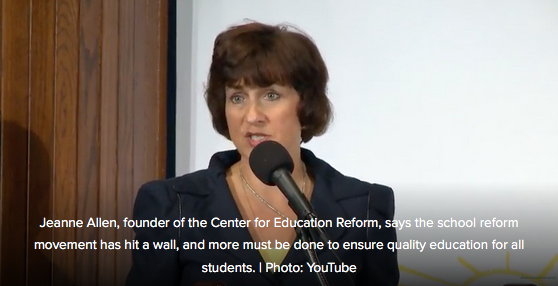by Evan Smith
Opportunity Lives
June 21, 2016
Out of tragedy, an opportunity emerged.
For decades the city of New Orleans was failing its children. The statistics make plain the reality of the situation: About 62 percent of students were enrolled in failing schools. And more than half of all students didn’t even graduate from high school.
Then came Hurricane Katrina, which destroyed lives and washed away much of the city’s education infrastructure, leaving in its wake widespread destruction of property and a historic exodus of city residents.
In that void, a small group of educators came together to rebuild.
“Sometimes it takes a tragedy to help remind us what’s important — and not to take it for granted,” notes a recent manifesto from the Center for Education Reform. “Nowhere is this more obvious for the education reform movement than looking at New Orleans.”
In many ways — unpleasant as it sounds — the storm’s aftermath offered the perfect ecosystem in which to try something new, something better, for the sake of empowering the city’s historically overlooked children.
So in a partnership with the state of Louisiana, education reformers and local community leaders ushered in a movement of autonomous charter schools to fill the void, and the results speak for themselves.
“Since Katrina, [New Orleans] schools have produced what some experts believe to be the most rapid academic improvement in American history — and created a reform model other cities are trying,” wrote David Osborne, a senior fellow and director at the Progressive Policy Institute.

Today, more than 92 percent of kids in the Big Easy attend charter schools. Of those students, three-quarters are graduating high school on time, while the percentage of students testing at grade level has gone up by 77 percent, according to the Center for Education Reform.
Simply put, the New Orleans transformation is the “most radical overhaul of any type in any school district in at least a century,” according to Tulane University economist Douglas Harris.
What’s even more striking about the New Orleans story is that this rebirth brought on by charters had not only improved student achievement — it would appear to be replacing the old system altogether.
“For education reformers — the people who dreamed of remaking not only schools, but re-imagining school districts and entire education systems — New Orleans reminds us what is possible,” notes the CER manifesto. “Parents, regardless of their means and their zip code, are finally getting to choose what’s best for their children.”
At least that’s the way it looked for awhile.
But as the Center of Education Reform’s Jeanne Allen humbly admitted to Opportunity Lives, “If we as a movement are to be honest with ourselves, we must knowledge that our efforts to drive change have hit a wall.”
“More was accomplished in the first nine years of the education reform movement than in the past 16,” Allen added.
That stunted progress is true for New Orleans as well.
“Perhaps the most troubling sign of reform’s place in the decade is the sudden unraveling of the New Orleans revolution,” the manifesto notes.

While reformers had hoped the clear statistical evidence of New Orleans rebirth was proof enough to justify a replication of its system in other cities, what they have come to see as reality is a pattern of assault from all sides by opponents of such change.
And nowhere is frustration over this situation more blatant than on the editorial page of the New Orleans Times-Picayune.
“Twenty years after Louisiana’s first charter school opened, you’d think the state’s educational establishment would’ve accepted the independent and innovation charters represent,” the Times-Picayune editorialized recently. “But judging by the slew of legislation filed this year to curb the growth of charters, that isn’t the case.”
With bills being introduced in Louisiana to limit the state Board of Elementary and Secondary Education’s power to grant charters, bills that will take funding away from charters and bills that forbid charter boards from contracting with for-profit operators, it is a clear attack on the very idea of charters as a whole.
And it would appear that the entire justification for this assault is not based on the desired improvement of students, or providing parents with access to good schools, but simply because Gov. John Bel Edwards believes school districts should get the final say on charters.
To that notion — as well as the idea that charters are not clearly a better path, and that school choice isn’t a fundamental right, and that student success isn’t dependent on school choice — the editorial board of the Times-Picayune has one simple response:
“We disagree.”
When it comes to creating opportunity for Louisiana students, the past decade of charter implementation has given more children hope than ever before, the editorial board wrote. And lawmakers should never get in the way of dreams.

